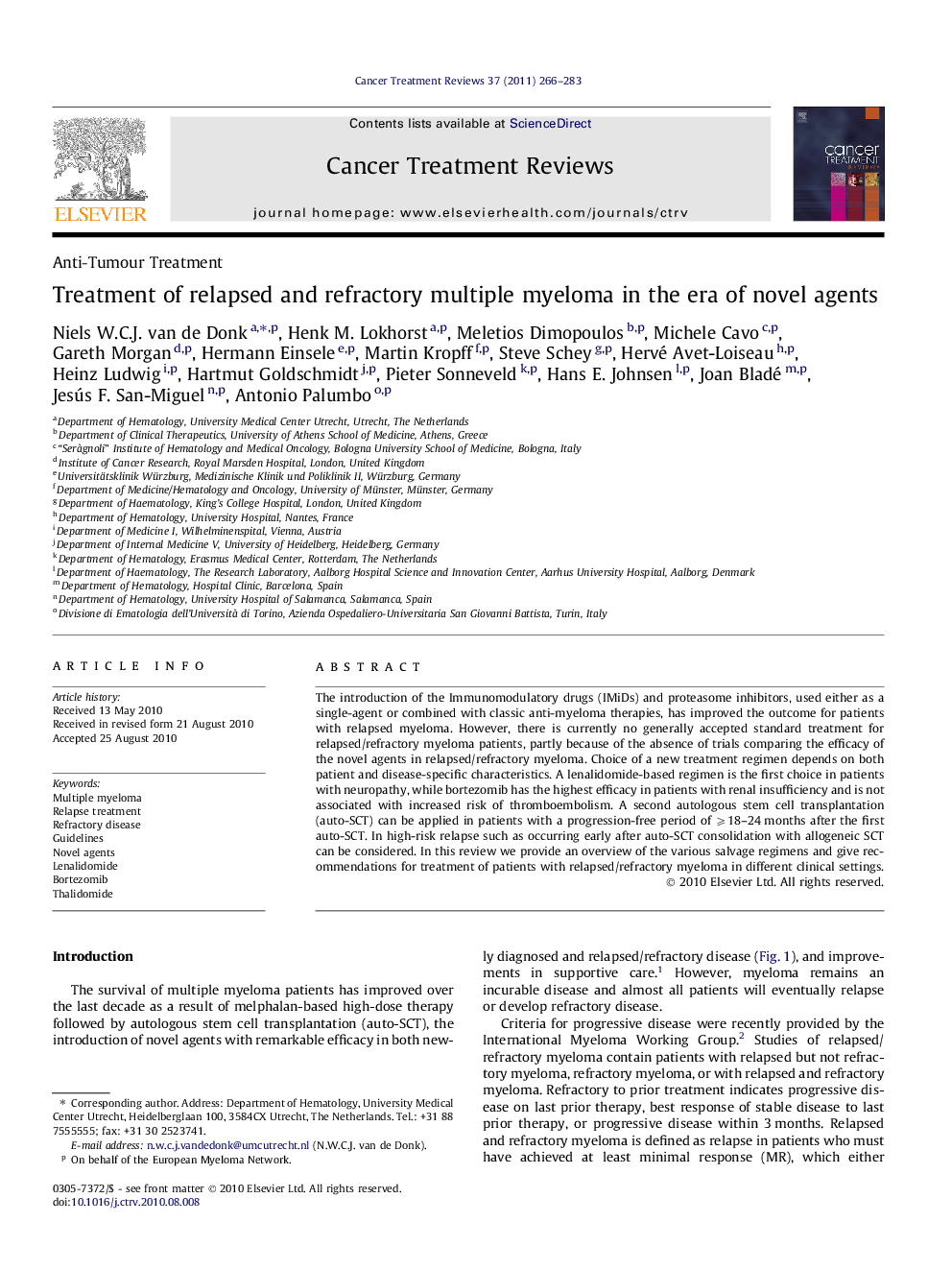| Article ID | Journal | Published Year | Pages | File Type |
|---|---|---|---|---|
| 3980128 | Cancer Treatment Reviews | 2011 | 18 Pages |
The introduction of the Immunomodulatory drugs (IMiDs) and proteasome inhibitors, used either as a single-agent or combined with classic anti-myeloma therapies, has improved the outcome for patients with relapsed myeloma. However, there is currently no generally accepted standard treatment for relapsed/refractory myeloma patients, partly because of the absence of trials comparing the efficacy of the novel agents in relapsed/refractory myeloma. Choice of a new treatment regimen depends on both patient and disease-specific characteristics. A lenalidomide-based regimen is the first choice in patients with neuropathy, while bortezomib has the highest efficacy in patients with renal insufficiency and is not associated with increased risk of thromboembolism. A second autologous stem cell transplantation (auto-SCT) can be applied in patients with a progression-free period of ⩾18–24 months after the first auto-SCT. In high-risk relapse such as occurring early after auto-SCT consolidation with allogeneic SCT can be considered. In this review we provide an overview of the various salvage regimens and give recommendations for treatment of patients with relapsed/refractory myeloma in different clinical settings.
